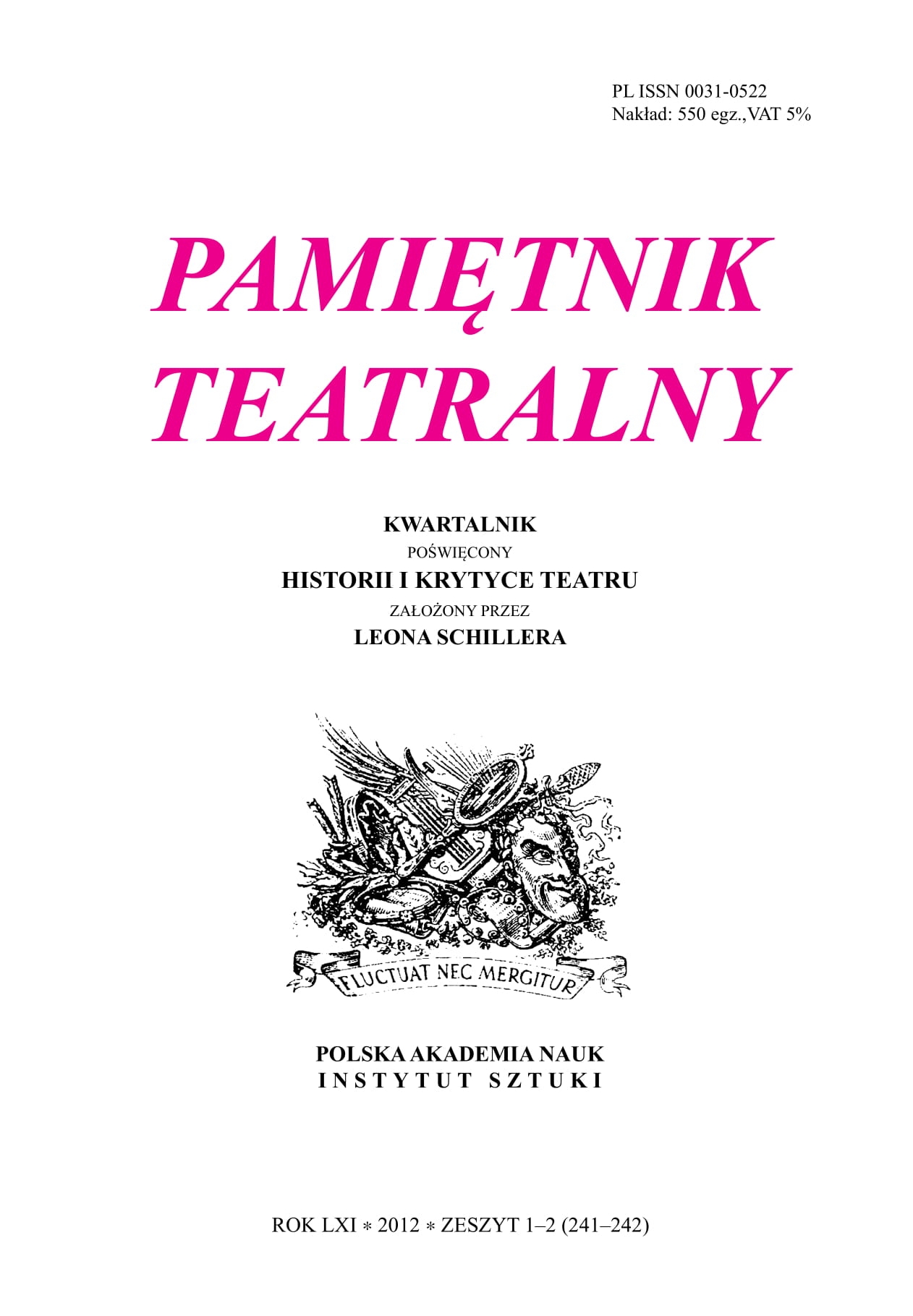SPATIF Leona Schillera
Leon Schiller’s SPATIF
Author(s): Anna ChojnackaSubject(s): Theatre, Dance, Performing Arts
Published by: Instytut Sztuki Polskiej Akademii Nauk
Keywords: Polish theatre;theatre history;Leon Schiller;trade unions’ movement in Poland;
Summary/Abstract: The Society of Polish Theatre and Film Artists (Stowarzyszenie Polskich Artystów Teatru i Filmu: SPATiF) was a continuation of the Polish Stage Artists Union (Związek Artystów Scen Polskich; ZASP) established by and for actors and directors in 1918. Leon Schiller had been its active member since the beginning. ZASP had made it its goal to evaluate and improve its members’ professional qualifications, and took care of various organisational and artistic matters. During the Second World War, the union organised help for actors in need and took part in some activities of the Polish underground. In 1945, as more and more of Poland’s territory was being freed from the Nazi oppression, new theatre companies and local trade union organisations were being formed. The Communist government, however, aimed at bringing all trade unions into submission. Thus, in 1949, a decision to dissolve six trade unions of artists, including ZASP, was made. Soon afterwards, they were all replaced by a single Trade Union of Arts and Culture Workers (Związek Zawodowy Pracowników Sztuki i Kultury) which was controlled by the Central Council of Trade Unions (Centralna Rada Związków Zawodowych), with party dignitaries holding the reins. Actors and directors were right to conclude that the new union would not represent their interests properly and decided to establish their own organisation. The process of its formation was controlled by the party. SPATiF was established at the Formation Conference held on 11 and 12 of July 1950. Schiller became its first president and right at the start presented an extensive programme. He proposed repertories with Romantic drama, professional and ideological training courses, organisation of a central library, publishing of theatrological literature and the society’s own periodical, and organisation of artistic councils in theatres. The assumption was that the society would have real influence on decisions concerning theatre. Yet SPATiF was not a trade union, and it was ignored by the government. The Managerial Board of SPATiF organised local branches of the Society but focused its activity on Warsaw. The organisation managed to collect a substantial number of books for its library; it organised numerous lectures, discussions, courses, meetings with artists from abroad, and actors’ jubilees. The Society engaged in important cultural and political events, i.e. general election to Sejm in 1952 or the Tenth Anniversary of the People’s Republic of Poland celebrations. It provided social help for its members and their families, and funded the Shelter for Veteran Artists in Skolimów. Despite numerous efforts of the President and the whole SPATiF, it had been impossible to establish any satisfactory principles of cooperation between the Society and the Central Management of Theatres Office, the Ministry of Culture and the Trade Union of Arts and Culture Workers. Schiller died on 25 March 1954. His duties were taken over by Vice-President Marian Wyrzykowski. The first General Meeting of the Society Members took place in 1955. Neither then nor later did the relations between SPATiF and the government improve.
Journal: Pamiętnik Teatralny
- Issue Year: 2012
- Issue No: 1-2
- Page Range: 143-210
- Page Count: 68
- Language: Polish

